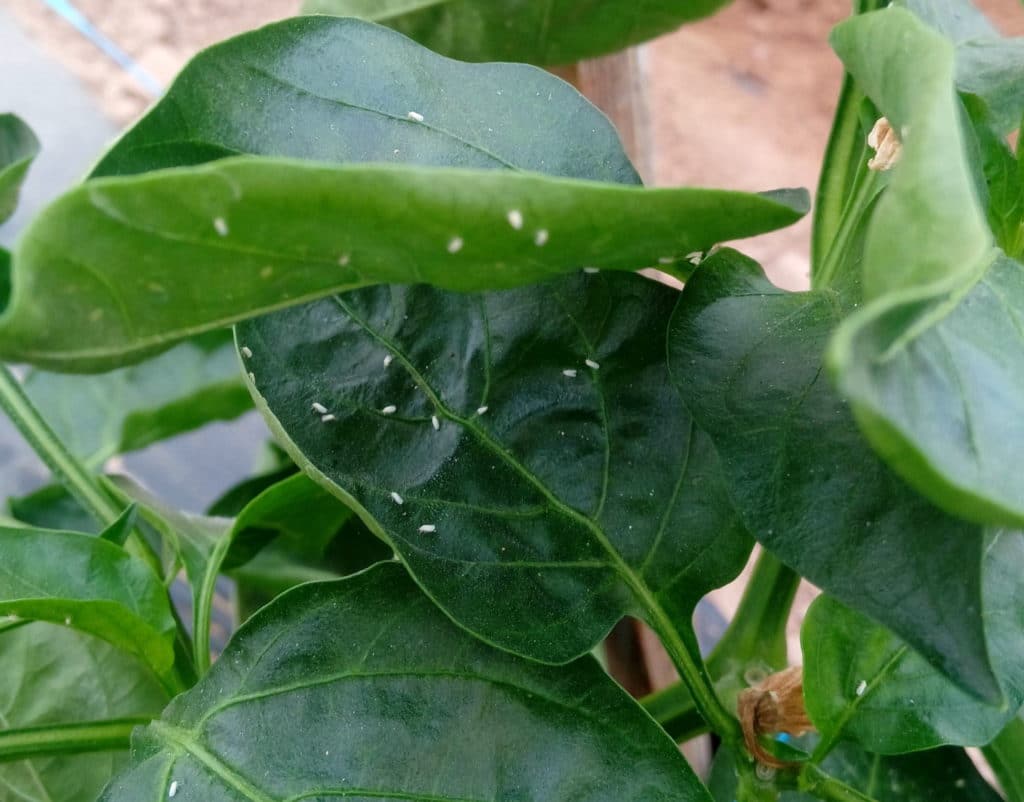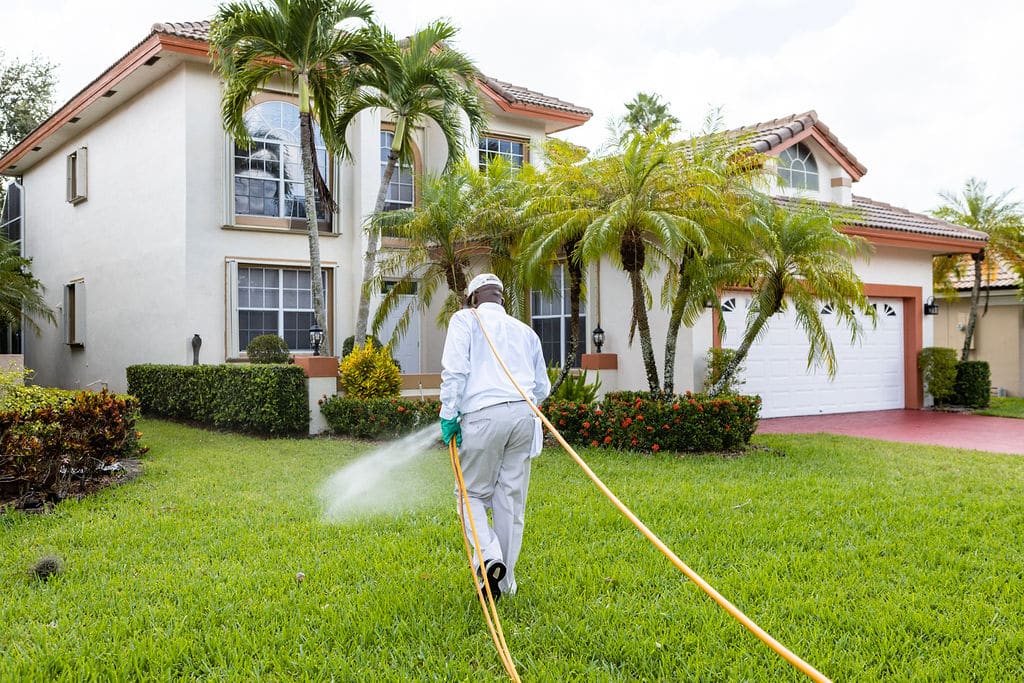Professional Whitefly Treatment
No Contract, No Commitments, Guaranteed Results!
Get in touch for expert whitefly treatment services.
Make The Most Of Your Yard With Gregory’s Whitefly Treatment Services
These small white-winged pests can fly, and they look somewhat like a fly—and their name might suggest that they’re flies—but, in reality, their closest relatives are mealybugs and aphids.
Unfortunately, once you get a few of them in or by your home, the highly fertile females will keep on reproducing. They have short reproduction cycles and can lay 200 to 400 eggs. They can kill off your plants and excrete a substance that attracts ants and other pests and creates mold.
If you’ve got a whitefly infestation, contact us online or call (954) 326-8287 for fast, effective treatment.
Types of Whiteflies
There are literally hundreds of types. Seriously. Some only go after a certain kind of host plant while others love to suck the juice out of a wide variety of plant life. Some problematic species include the banded winged whitefly, giant whitefly, greenhouse whitefly, and silverleaf whitefly.
Then there is the spiraling whitefly. There are five different types of this species in Florida, and they can be a real problem. To get even more specific, the rugose spiraling whitefly, which loves warm weather and most likely came to the state from Central America, is attacking plenty of plant life in Florida. If you see eggs laid in a spiral pattern on leaves, topped with a waxy white substance, it’s very likely that there are spiraling whiteflies that are damaging your plants.

Plants They Destroy
As mentioned, different species attack different plants. Indoors, they go after houseplants, especially those with soft leaves. In the garden, they attack flowers as well as a wide range of vegetables and citrus fruits.
Then there are ficus trees and hedges. The United States Department of Agriculture (USDA) has reported on a new pest, a fig/ficus whitefly, attacking ficus in Florida. Like other whitefly species, the ficus whitefly sucks the juice out of plants, causing them to wilt, drop leaves, stunt growth, and, in many cases, even die. This species is also attracted to azalea plants.

Signs of Infestation
Because whiteflies prefer to feast on new growth, they’re often found on the undersides of leaves. They especially gravitate to the veins of leaves. There, you might see white insects. Once they know you’re nearby, they’ll fly off in a swarm, which can be quite noticeable.
Sometimes, you won’t spot the pests themselves. Instead, you might notice yellowing leaves or ones that are shriveling and falling off the plant. If feeding is heavy, the plant can’t conduct the photosynthesis process and will die.
If you touch any leaves and they’re unexplainably sticky or shiny in appearance, that may be the presence of honeydew that whiteflies give off. Mold is another sign. Or you might see tiny yellow or brown eggs. As they transform into white oval larvae, they suck the plant juice even before they’re able to move.

Whitefly Prevention
When bringing a new plant into your home, check it for any signs of whitefly infestation. Even if you don’t see any, keep this plant away from others in your home for a period of time, just in case. Outdoors, the following insects help to prevent a whitefly population from growing: dragonflies, ladybugs, and spiders, among others. Hummingbirds also eat whiteflies so attracting them to your yard can help.
If you’re concerned about whiteflies, you can spray your plants with soapy water. If the population is still small, that may work. Or, contact Gregory’s Pest Control for professional whitefly treatment.

How Our Whitefly Treatments Work
With each of our pest control services, we use the safest, most effective treatments possible. Our goal is always to protect the homes of our customers, along with their families, just as we do with our own. With whiteflies, our outdoor treatments are based upon the linear feet and height of hedges.
Here’s Why to Choose Gregory’s Pest Control Services
We established our family-owned and operated business in 1985, committed to offering top quality services. Our founder, Bob Gregory, started Gregory’s Pest Control after working for a national pest control chain and realizing that there had to be a more customized way to offer these services. So, our pest control company follows the philosophy that customers value quality professional services delivered by a local business that provides personalized customer service.
That’s exactly what we provide to our treasured customers in the communities of Weston, Davie, Coral Springs, Boca Raton, and the surrounding cities—with a 100% satisfaction guarantee!To get started, contact us online or call (954) 326-8287 today!




